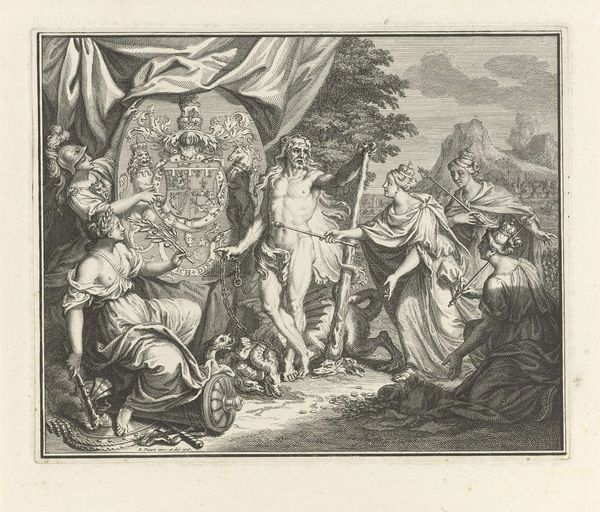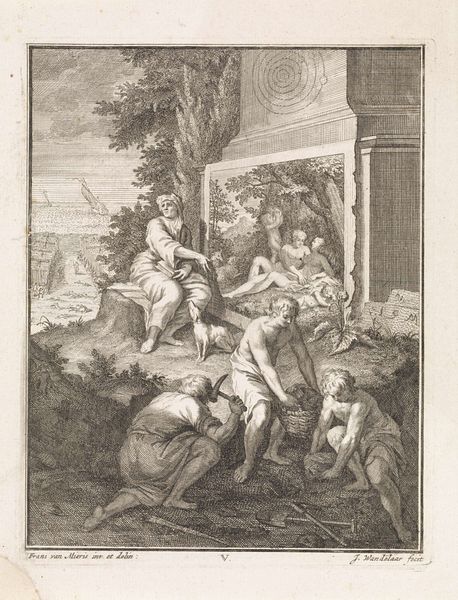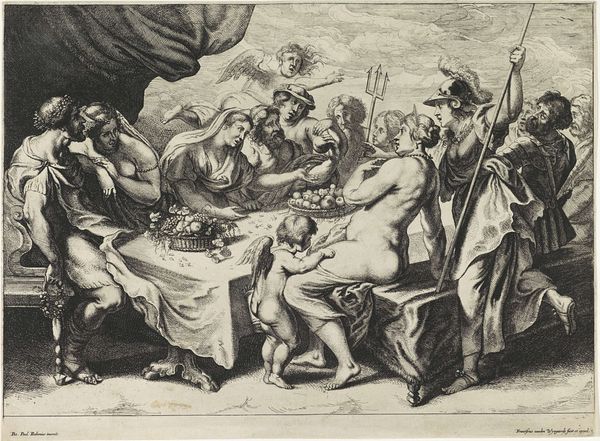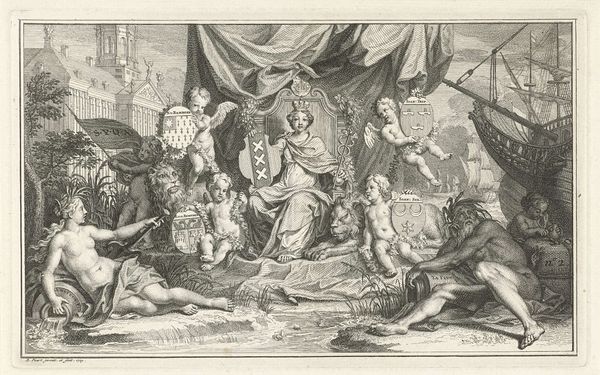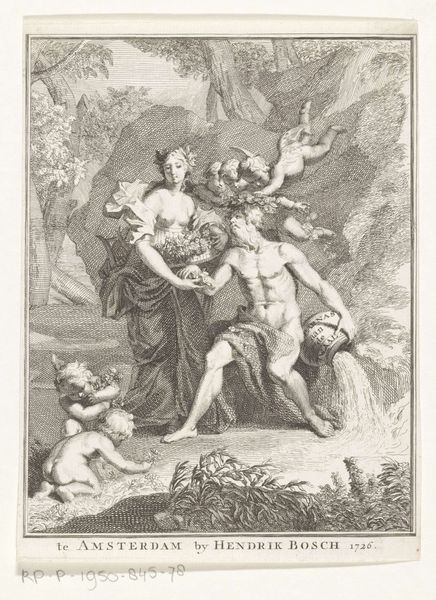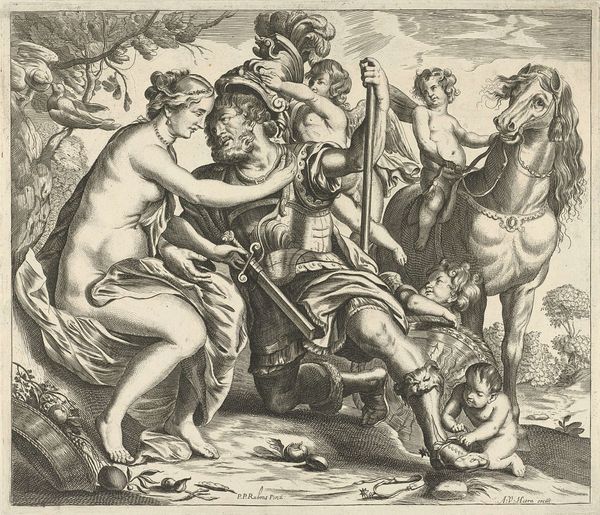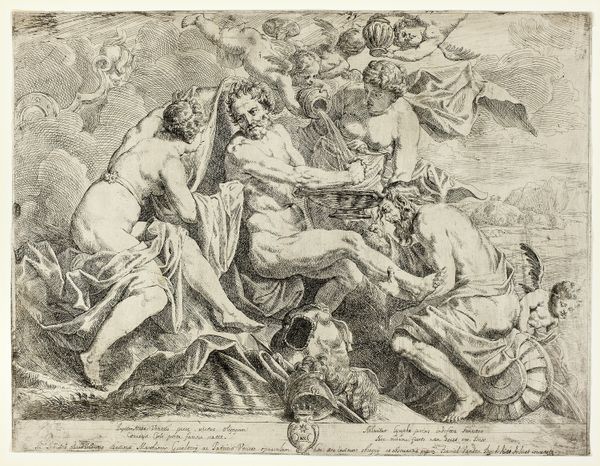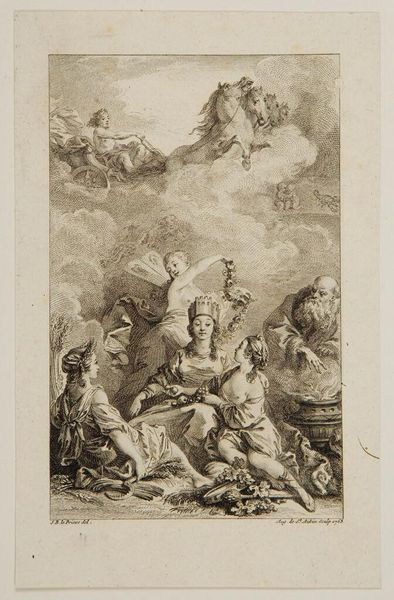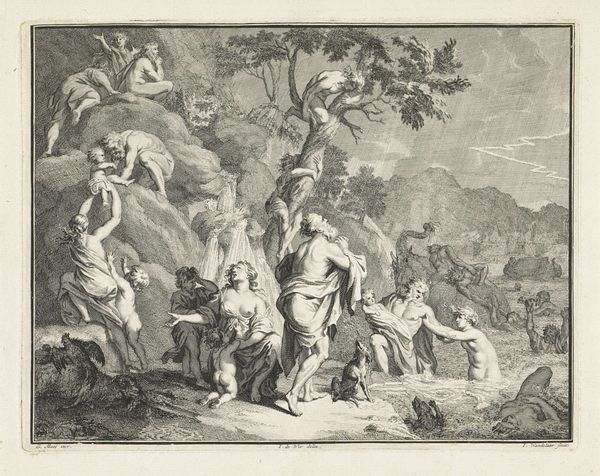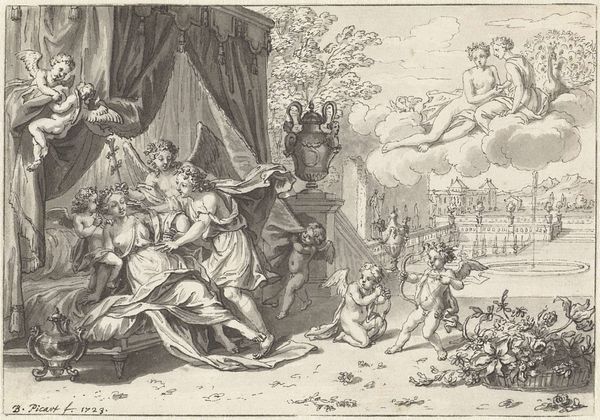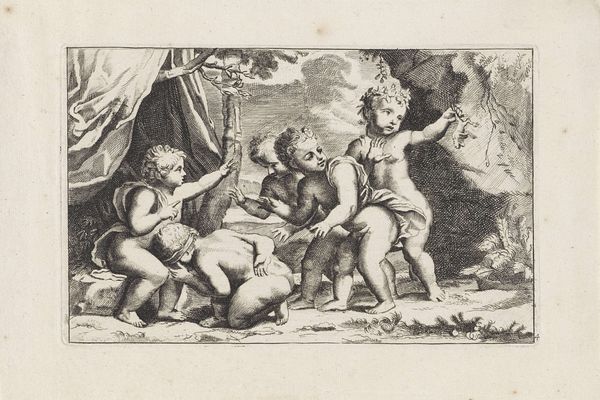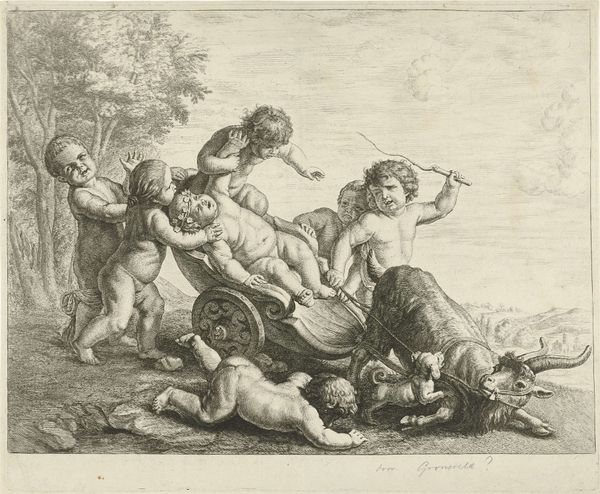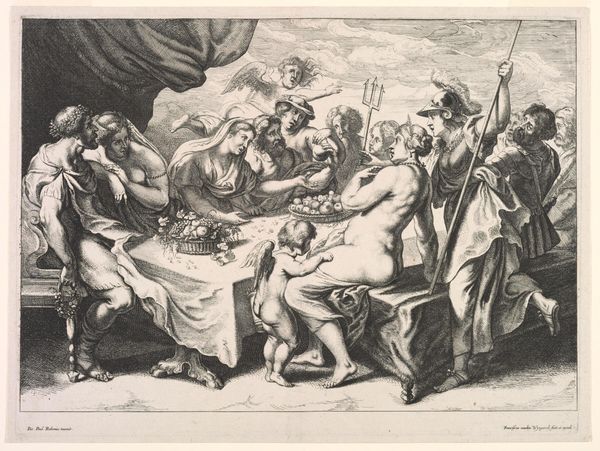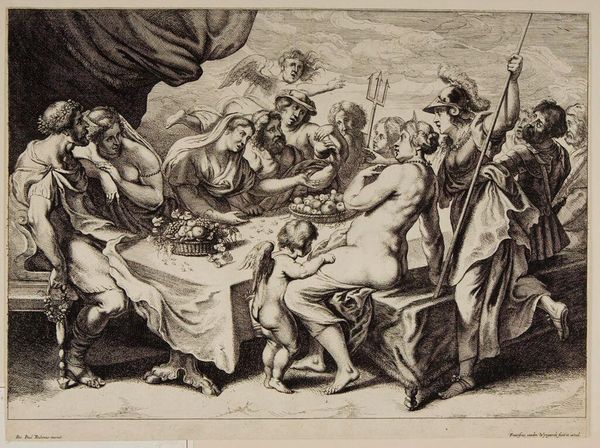
engraving
#
allegory
#
baroque
#
pen illustration
#
old engraving style
#
line
#
history-painting
#
engraving
Dimensions: height 76 mm, width 111 mm
Copyright: Rijks Museum: Open Domain
Editor: Here we have Bernard Picart’s engraving, "Stedenmaagd met wapenschild, Faam en stroomgodin" from 1725, currently housed in the Rijksmuseum. It strikes me as a grand, allegorical tableau—packed with symbolism that probably spoke volumes to its contemporary audience. What historical context might illuminate its meaning for us today? Curator: It's fascinating how loaded these images were with political and social significance! Remember, prints like these circulated widely. Consider the function of civic imagery at this time: this print likely served as propaganda, idealizing a specific city and its power. What elements specifically point you toward the ‘grand’ aspect of its allegorical tone? Editor: Well, there's the central female figure with the city's flag, then the coat-of-arms, plus cherubic figures, another woman with a laurel wreath...it’s a very idealized and frankly, grandiose depiction. Is the ‘Stedenmaagd,’ this city virgin, a common trope? Curator: Absolutely. Think of "Britannia" or "Columbia." These personifications were used to embody national or civic virtues and aspirations. The city virgin’s presence connects the city with purity, strength, and perhaps even a sense of divine favor. Have you considered who might have commissioned a piece like this? Editor: Perhaps the city council, to promote civic pride or project an image of strength and prosperity? Curator: Precisely! Now consider the figures surrounding her: Fame, the river god representing trade...all reinforcing the city's accomplishments and foundations. This image performs political work: it legitimizes authority and fosters collective identity. Editor: It's incredible how much meaning could be packed into one image. Seeing it as a piece of propaganda really changes my perception of its role. Curator: And that's the power of understanding the historical and cultural context. It transforms a beautiful image into a powerful statement about society and politics.
Comments
No comments
Be the first to comment and join the conversation on the ultimate creative platform.
